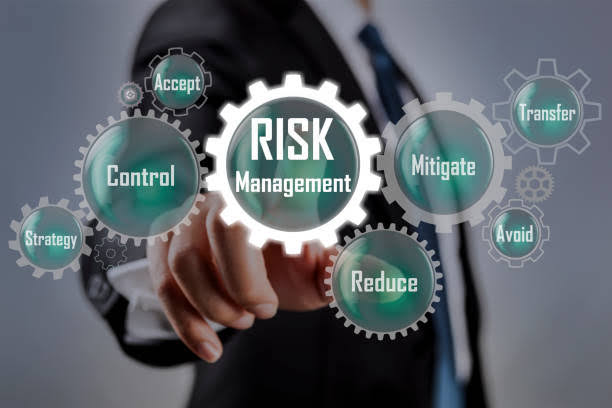
Non-Governmental Organizations (NGOs) face a wide range of risks in their operations, as they work in diverse and challenging environments to achieve their mission of addressing social, economic, and environmental issues.
These can significantly impact the effectiveness and sustainability of an NGO’s work, as well as the well-being of their staff, beneficiaries, and stakeholders.
20 of these risks are:
1. Financial risk: NGOs rely on funding from donors, grants, and other sources, which can be unpredictable and subject to fluctuations.
Managing financial risk involves diversifying funding sources, building financial reserves, and implementing strong financial controls.
2. Legal risk: NGOs may face legal challenges related to compliance with regulations, contracts, and intellectual property rights.
Managing legal risk involves ensuring compliance with all relevant laws and regulations, maintaining proper documentation, and seeking legal advice as needed.
3. Governance risk: The effectiveness and sustainability of an NGO depend on strong governance structures and processes.
Managing governance risk involves ensuring transparency, accountability, and ethical behavior at all levels of the organization.
4. Reputational risk: NGOs rely on their reputation and credibility to attract funding, partnerships, and support.
Managing reputational risk involves maintaining open and honest communication with stakeholders, addressing any issues or controversies promptly, and upholding high ethical standards.
5. Security risk: NGOs operate in diverse and often dangerous environments, where staff, beneficiaries, and assets may be at risk.
Managing security risk involves assessing and addressing potential threats, implementing security protocols and training, and working closely with local authorities and security experts.
6. Operational risk: NGOs face a range of operational challenges, including supply chain disruptions, technology failures, and staff turnover.
Managing operational risk involves developing robust systems and processes, conducting regular risk assessments, and implementing contingency plans.
7. Human resources risk: NGOs rely on skilled and committed staff to carry out their mission.
Managing human resources risk involves recruiting and retaining talented employees, providing ongoing training and professional development, and promoting a positive work culture.
8. Environmental risk: NGOs working on environmental issues may face risks related to climate change, natural disasters, and resource depletion.
Managing environmental risk involves integrating sustainability principles into all aspects of the organization’s operations and advocating for policies that protect the environment.
9. Social risk: NGOs working on social issues may face risks related to discrimination, conflict, and social unrest.
Managing social risk involves working closely with communities, building trust and partnerships, and advocating for social justice and human rights.
10. Health and safety risk: NGOs working in challenging environments may face risks related to health and safety, including infectious diseases, accidents, and workplace hazards.
Managing health and safety risk involves providing training and protective equipment to staff, conducting regular health and safety assessments, and addressing any issues promptly.
11. Political risk: NGOs operating in politically sensitive environments may face risks related to government interference, censorship, and political unrest.
Managing political risk involves staying informed about local political dynamics, maintaining neutrality and independence, and building alliances with local stakeholders.
12. Compliance risk: NGOs must comply with a range of laws and regulations, including those related to financial reporting, fundraising, and data protection.
Managing compliance risk involves staying up to date with changing laws and regulations, maintaining accurate records, and seeking legal advice as needed.
13. Fundraising risk: NGOs rely on fundraising to support their programs and operations.
Managing fundraising risk involves diversifying funding sources, building strong relationships with donors, and developing compelling fundraising strategies.
14. Cybersecurity risk: NGOs collect and store sensitive data on their beneficiaries, donors, and operations, which makes them vulnerable to cyber attacks.
Managing cybersecurity risk involves implementing strong data security measures, training staff on cybersecurity best practices, and conducting regular security audits.
15. Reputation risk: NGOs rely on their reputation and credibility to attract support and partnerships.
Managing reputation risk involves monitoring media coverage and social media, responding quickly to any negative publicity, and actively promoting the organization’s successes and impact.
16. Fraud risk: NGOs may be vulnerable to fraud, theft, and corruption, both internally and externally.
Managing fraud risk involves implementing strong financial controls, conducting regular audits and monitoring, and promoting a culture of transparency and accountability.
17. Evaluation and monitoring risk: NGOs must demonstrate the impact and effectiveness of their programs to donors and stakeholders.
Managing evaluation and monitoring risk involves developing robust monitoring and evaluation systems, collecting reliable data on outcomes and impact, and using this information to improve program delivery.
18. Partnerships risk: NGOs rely on partnerships with other organizations, governments, and local communities to achieve their mission.
Managing partnerships risk involves building strong relationships, clearly defining roles and responsibilities, and ensuring alignment on goals and values.
19. Conflict of interest risk: NGO staff and board members may face conflicts of interest in their personal or professional relationships.
Managing conflict of interest risk involves developing and implementing conflict of interest policies, conducting regular disclosures, and addressing any conflicts promptly and transparently.
20. Ethical risk: NGOs must uphold high ethical standards in their operations and relationships.
Ethical risk can be managed by promoting the organizational values, providing ethical training, implementing a system for reporting unethical behaviors and using organization’s structure to deter unethical activities.
